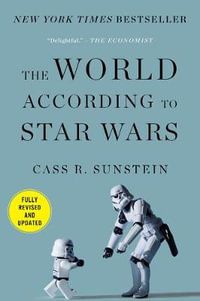In Exception Taken , Jonathan Buchsbaum examines the movements that have emerged in opposition to the homogenizing force of Hollywood in global filmmaking. While European cinema was entering a steady decline in the 1980s, France sought to strengthen support for its film industry under the new Mitterrand government. Over the following decades, the country lobbied partners in the European Economic Community to design strategies to protect the audiovisual industries and to resist cultural free-trade pressures in international trade agreements. These struggles to preserve the autonomy of national artistic prerogatives emboldened many countries to question the benefits of accelerated globalization.
Led by the energetic minister of culture Jack Lang, France initiated a series of measures to support all sectors of the film industry. Lang introduced laws mandating that state and private television invest in the film industry, effectively replacing the revenue lost from a shrinking theatrical audience for French films. With the formation of the European Union in 1992, Europe passed a new treaty (Maastricht) that extended its legal purview to culture for the first time, setting up the dramatic confrontation over the General Agreement on Trade and Tariffs (GATT) in 1993.
Pushed by France, the EU fought the United States over the idea that countries should preserve their right to regulate cultural activity as they saw fit. France and Canada then initiated a campaign to protect cultural diversity within UNESCO that led to the passage of the Convention on Cultural Diversity in 2005. As France pursued these efforts to protect cultural diversity beyond its borders, it also articulated "a certain idea of cinema" that did not simply defend a narrow vision of national cinema. France promoted both commercial cinema and art cinema, disproving announcements of the death of cinema.
About the Author
Jonathan Buchsbaum is professor of media studies at Queens College, City University of New York, where he works on political filmmaking. He is the author of Cinema and the Sandinistas: Filmmaking in Revolutionary Nicaragua (2010) and Cinema Engage: Film in the Popular Front (1988).
Industry Reviews
Exception Taken explains and explores a striking state of affairs that most film lovers take for granted: the continued survival, in a globalized, "free" media market, of minority film cultures. This is one of the best- and most thoroughly researched books on cinema that I have ever read, on one of the most important subjects in contemporary world cinema... Buchsbaum tells the story of a political-legal process that has done more to shape the form and content of the modern audiovisual experience than anything else in recent history, and importantly, he shows us why it is so crucial to cinema's future. -- Alan L. Williams, Professor of French and Cinema Studies at Rutgers University and author of Republic of Images: A History of French Filmmaking Jonathan Buchsbaum is one of the leading scholars of the history of French cinema policy and institutions. With this book, he presents an outstanding analysis of a system that has furnished models for other national cinemas. Often, these policies are reduced to a state-imposed system of protection based on taxation and financial assistance. The author counters this by demonstrating it to be an effective and beneficial system of regulation. French policies have ensured that long-term collective interests prevail by introducing qualitative factors that constrain the dominance of short-term economic interests. An essential contribution to understanding what is, and can be, a cinema policy. -- Laurent Creton, Professor in Economy of Cinema, University Sorbonne Nouvelle - Paris 3 Jonathan Buchsbaum has given us a powerfully researched analysis of the political economy of French film and state-aided funding systems since the 1970s. Exception Taken shows how French cinema has intersected with other national cinemas, and how the famous "French exception" - which excluded cultural products from international general trade agreements such as the GATT accords - was part of a vigorous state policy to save French cinema from domination by Hollywood, while becoming increasingly international in funding outreach. Explanatory appendices (schematics) provide a clear map for understanding and tracking this complex comparative history of national and international cinemas. This is an essential, foundational study of the political economy of French film since the 1970s. -- Janet Bergstrom, University of California, Los Angeles
























